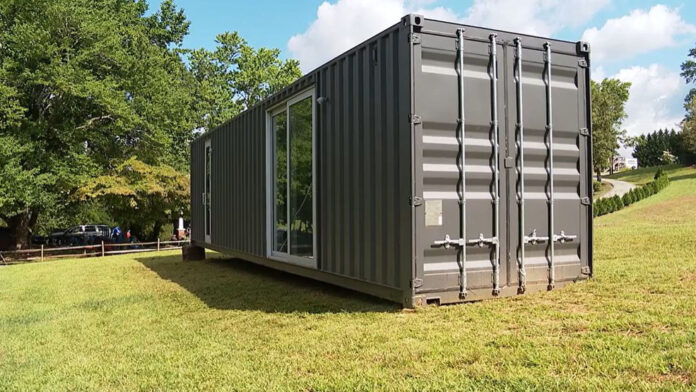A Tough Housing Market
Asheville, North Carolina, is facing one of its most challenging housing markets in over a decade. Local experts report that low inventory and soaring prices are driving potential homebuyers out of the market, exacerbated by mortgage rates that have climbed to over 7%. With an increasing number of families struggling to find affordable housing, community leaders and developers are calling for creative solutions to increase inventory and reduce prices.
The Rise of Alternative Housing: Shipping Container Homes
Amid these challenges, innovative approaches to housing are beginning to emerge. One such approach involves repurposing shipping containers into custom homes. Developer Ricky L. Coates of RLC Service Group, Inc. has seen a growing interest in this creative housing solution. Coates explained that the adaptability of shipping containers offers design versatility rarely found in traditional homes. “The use is unlimited,” he said, showcasing the chic interiors that include tongue-and-groove shiplap siding, modern bathrooms, and energy-efficient insulation.
Shipping container homes can be completed more quickly than traditional builds, with some units ready in as little as three months once the necessary permits are secured. This expedited construction process allows families to move into homes sooner while mitigating some of the cost challenges posed by the conventional housing market.
Economic Challenge and the Need for Action
Despite the innovative potential of container homes, community advocates argue that a multifaceted approach is necessary to tackle the housing crisis. Jen Hampton, representative of Asheville Food and Beverage United, emphasizes that no solution should be dismissed. “It’s heartbreaking. The traditional way of building, particularly single-family homes, has become astronomically expensive,” she stated.
The sobering economic realities highlight the growing gap between wages and housing prices. Amanda Hunsucker, program director at On Track, notes, “The area median income for a household of four is $85,000 a year, while the median home price last month was $595,000.” With many households unable to afford a home, she insists that creative solutions are essential, even if lenders have yet to embrace these non-traditional options fully.
Exploring Community Solutions
Community engagement is a vital component in seeking solutions to the housing crisis. Activist groups like Asheville for All are urging local governments to prioritize affordable housing initiatives. They are advocating for the exploration of tourism taxes to help fund additional affordable housing projects. To facilitate dialogue around these issues, they have organized a meeting where community members can share their experiences with local officials.
Growing Interest in Non-Traditional Housing Options
Interest in shipping container homes and other non-traditional housing options is on the rise in Asheville. Coates has received orders for various projects, including single units designed as vacation rentals and combinations of multiple units into single-family homes. Some homeowners are even using containers as additions to existing properties, serving as home offices or recreational spaces.
As local developers continue to innovate, they create opportunities for families who might otherwise be priced out of the housing market. Other companies in the Upstate of South Carolina are also beginning to offer similar container construction services, indicating that this trend may be gaining traction beyond Western North Carolina.
Conclusion: A Path Forward
As Asheville grapples with a housing crisis, the urgency for creative solutions is evident. The emergence of shipping container homes showcases a promising avenue for increasing housing inventory and addressing the financial barriers families face. However, true progress will necessitate collaboration among community members, developers, and government officials to ensure diverse and affordable housing options for all.
Community members wishing to contribute their stories and input are encouraged to attend the upcoming meeting on September 5, organized by Asheville for All. Together, as a community, innovative solutions to the housing affordability crisis can be forged, ensuring that Western North Carolina remains a place where everyone can find a home.














